Movie Review – Moon Knight
Principal Cast : Oscar Isaac, Ethan Hawke, May Calamawy, F Murray Abraham, Ann Akinjirin, Khalid Abdalla, Gaspard Ulliel, Antonia Salib, Fernanda Andrade, Rey Lucas, Sofia Danu, Saba Mubarak, Shaun Scott, Diana Bermudez, Lucy Thakeray, Saffron Hocking, Alexander Cobb.
Synopsis: Steven Grant discovers he’s been granted the powers of an Egyptian moon god. But he soon finds out that these newfound powers can be both a blessing and a curse to his troubled life.
********
The MCU continues to defy expectations with a hugely successful foray into darker aspects of the franchise with the Disney+ debut of Moon Knight, a 6 episode prestige series starring Oscar Isaac as the cult comic book favourite. Ask a thousand people who Moon Knight is and I’d put good cash down to wager you’d get maybe 1 or fewer who know the answer; Kevin Feige and his creative team, particularly director Mohamed Diab, writers Jeremy Slater, Alex Meenehan, Peter Cameron, Beau DeMayo and Sabir Prizada (among others) and some truly remarkable production values bring the first Egyptian-based superhero to the screen with stunning success. Now, everyone will know who Moon Knight is.
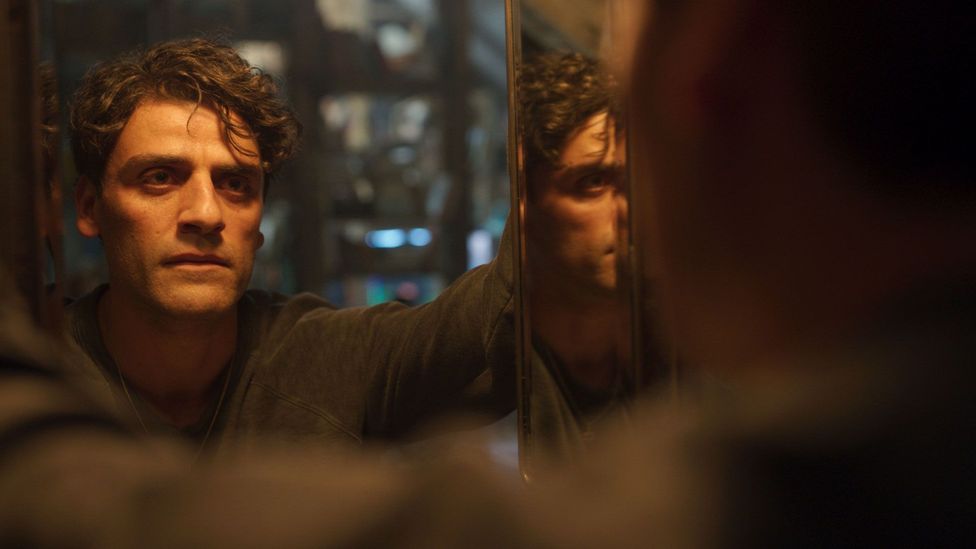
Steven Grant (Oscar Isaac) works at the British Museum in London where he hopes to become a tour guide. Afflicted with bizarre dreams each night, Steven is forced to shackle himself to his bed to prevent himself from sleepwalking, although mysterious patches of amnesia continue to plague him as he has often wakes to find himself in bizarre and occasionally deadly situations. He encounters the mysterious Harrow (Ethan Hawke) an acolyte of the Egyptian goddess Ammit, a man who hopes to bring about the Earthly domination of this former evil entity. To make matters worse, Steven also runs into a woman, Layla (May Calamawy) who claims to be his wife. It turns out Steven is actually one of two distinct personalities inhabiting the same body – the second, Marc Spector, is a far darker presence and has a history of killing in order to protect the secret of Khonshu (voice of F Murray Abraham), the Egyptian God of the Moon who utilises Spector/Grant as his Earthly avatar, defending the innocent and bringing justice to evildoers as the cloaked figure of Moon Knight. As Marc and Steven battle for control and understanding of their split personality, Layla and Harrow, as well as ancient Egyptian Gods brought into the fray to aide them, try to thwart Harrow and his dastardly plans to unleash Ammit (voice of Saba Mubarak) upon an unsuspecting world.
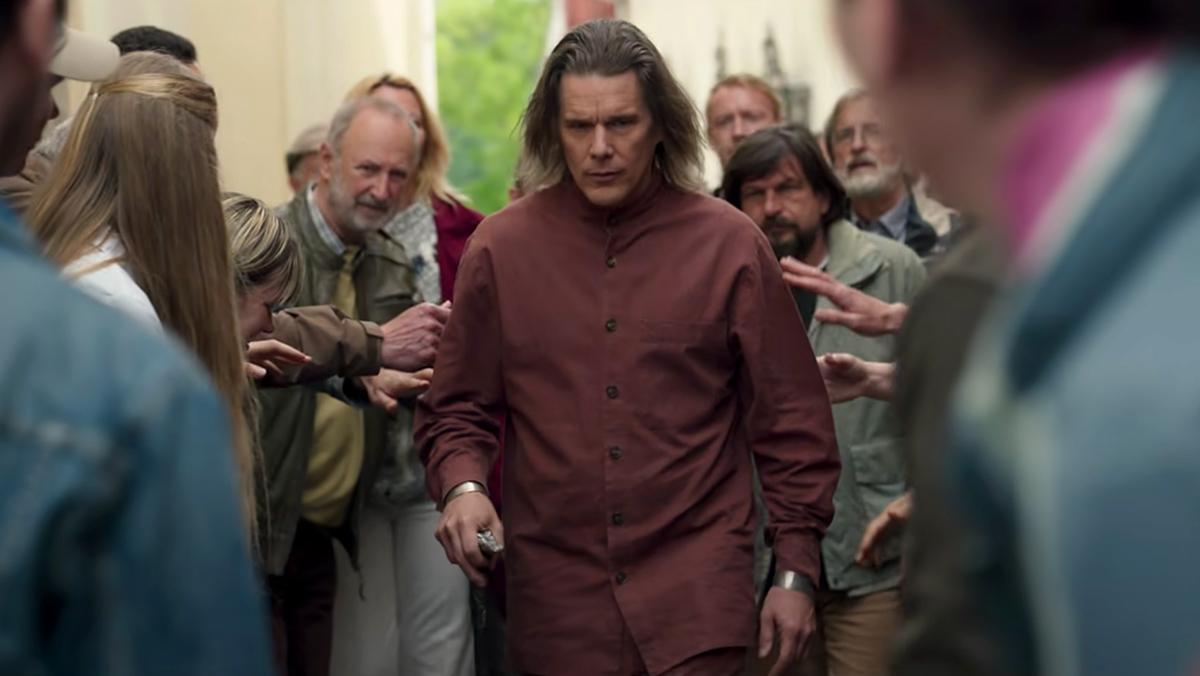
Unlike higher profile comic book characters, such as Spider-Man or Superman, Marvel’s Moon Knight has always seemed to be a fringe player, a cult favourite for deep-cut comic book enthusiasts. Often described (wrongly) as a cut-rate Batman, Moon Knight debuted in 1975 as the creation of Doug Moench and Don Perlin, and enjoyed a respectable printed history through a variety of incarnations; initially a decidedly non-superpowered character, similar to Batman, Marc Spector, Steven Grant and Jake Lockley are all separate personalities within the same body who transform into the caped vigilante Moon Knight to fight crime and bring justice to the oppressed, all under the watchful eye of the Egyptian spirit Khonshu, which in early stories is indicated as being a complete delusion. Later iterations of the character leaned more directly into Egyptian mythology, and elements of spirituality were interjected into the character, who was described as suffering Dissociative Identity Disorder, something this Marvel Disney+ show absolutely runs with.
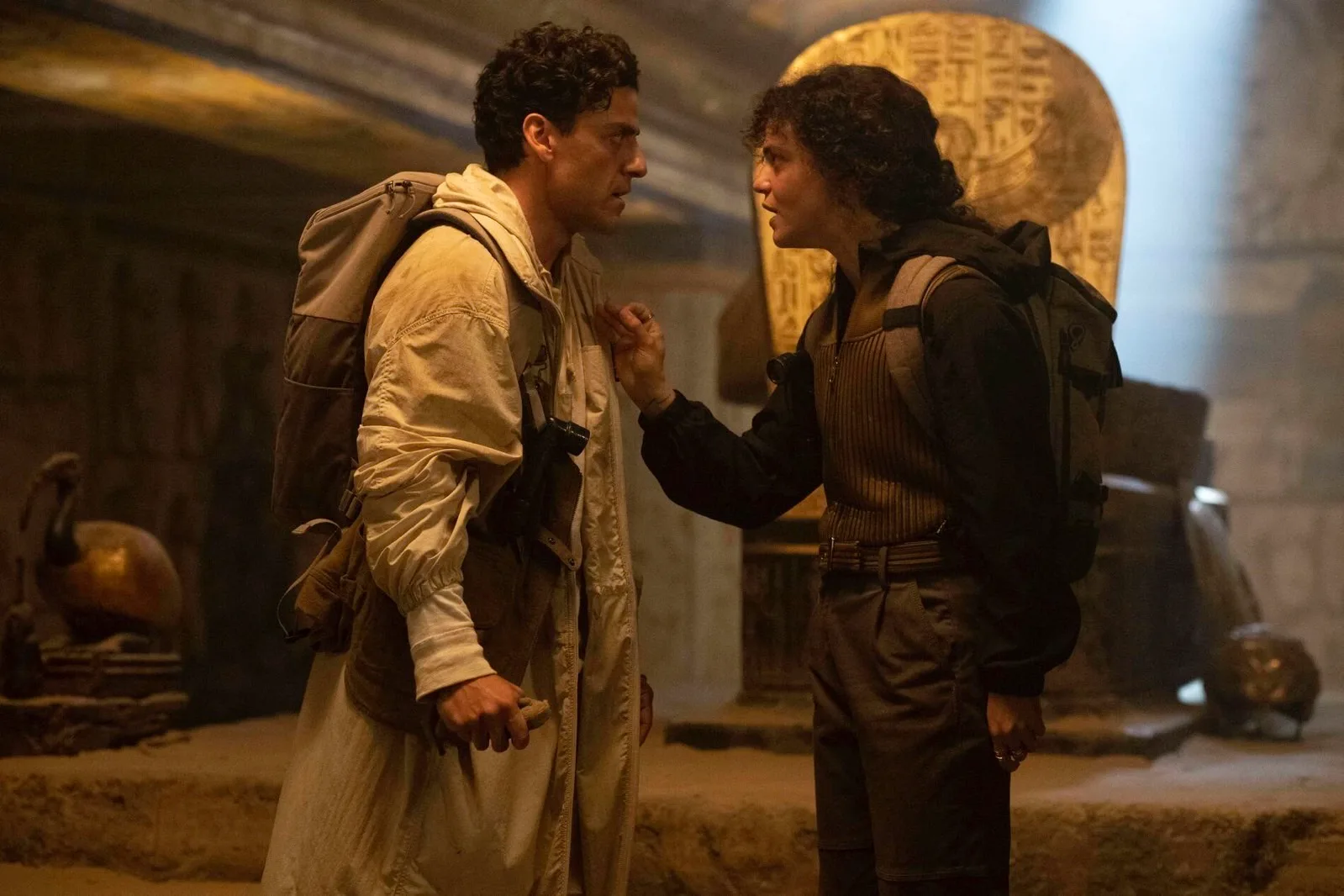
Although I’ve never spent much time reading Moon Knight comics, I’m familiar enough with the premise to understand a few of the callbacks, winks to the audience and general tone of the show, which combines a lot of established lore in a mish-mash of well designed superheroics, sublime depictions of DID (largely thanks to Oscar Isaac’s award-worthy performance) and some legitimate surprises as the Marvel Cinematic Universe widens up even further. It’s fair to say at this point that Phase 4 of the MCU appears generally listless in its overall narrative thrust – there’s no Thanos shadow looming over the franchise now – but on the whole I think Moon Knight is one of the studio’s best small-screen efforts, perhaps besting even WandaVision. Moon Knight doesn’t even offer the prerequisite Marvel cameos or in-continuity links to other projects in the franchise, standing alone in its own uniqueness, something I think allowing it to focus on developing its central character without outside forces piercing this intelligent, well-written bubble.
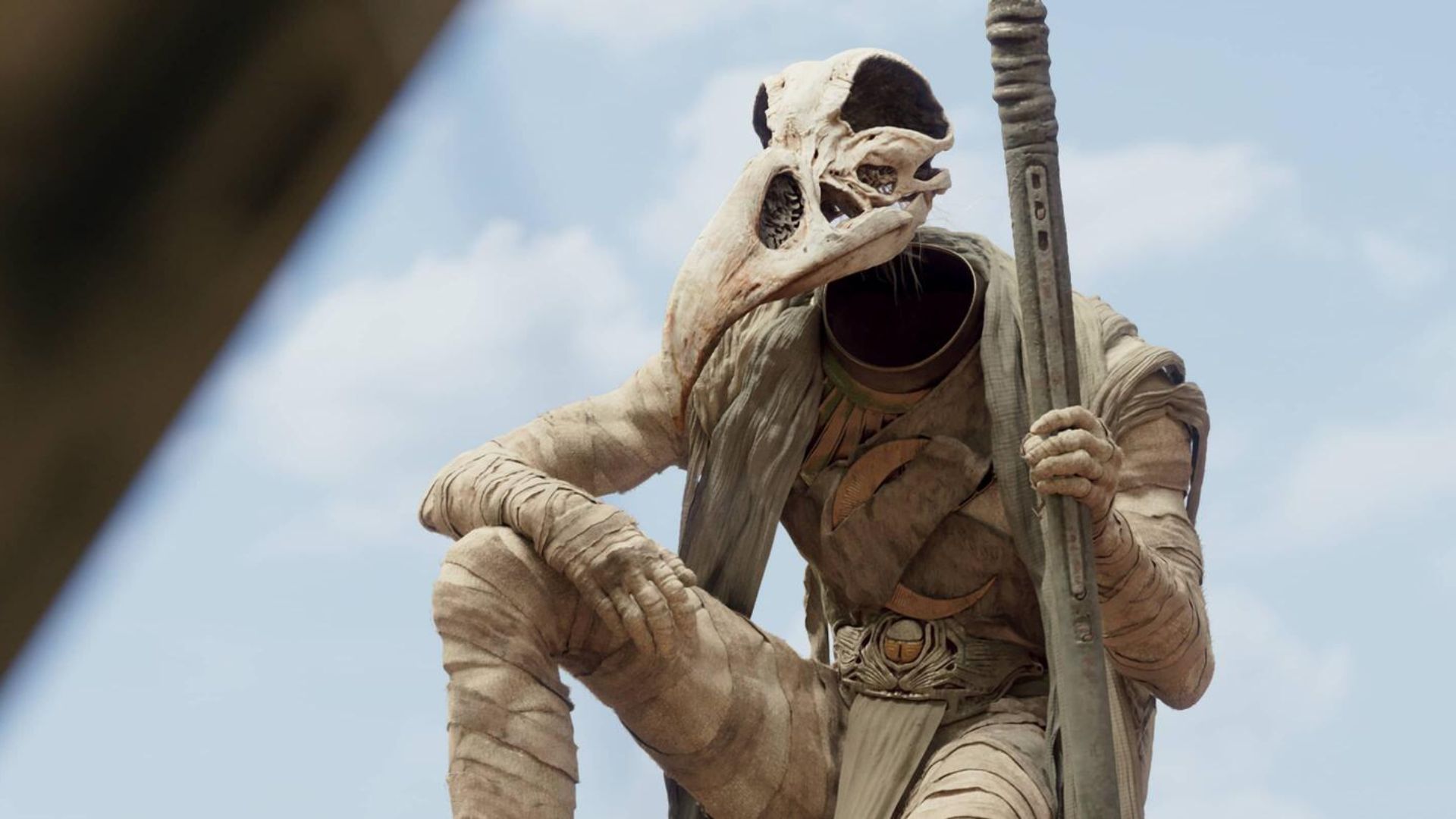
The series is essentially an origin story, which is required for a character of such complexity as this, showcasing the darker corners of the MCU’s cosmic and supernatural realms (the series namechecks aspects of Black Panther at one point) with cerebral and often confounding themes and plot points delivered to the viewer. While it does tackle darker themes than, say Hawkeye, Moon Knight never abrogates responsibility in depicting the split personality of Mark and Steven, the two primary personalities at work here, as a melancholy, tragic character tinged with regret; WandaVision tackled grief, The Falcon & The Winter Solder tackled racism and bigotry in the United States, and even Loki worked out some minor themes with the arrival of Sylvie and the impending Multiverse. These Disney+ shows have been great at offering more mature themes to audiences, in long-form storytelling, and Moon Knight is perhaps the most satisfying example of this adult-oriented style yet.
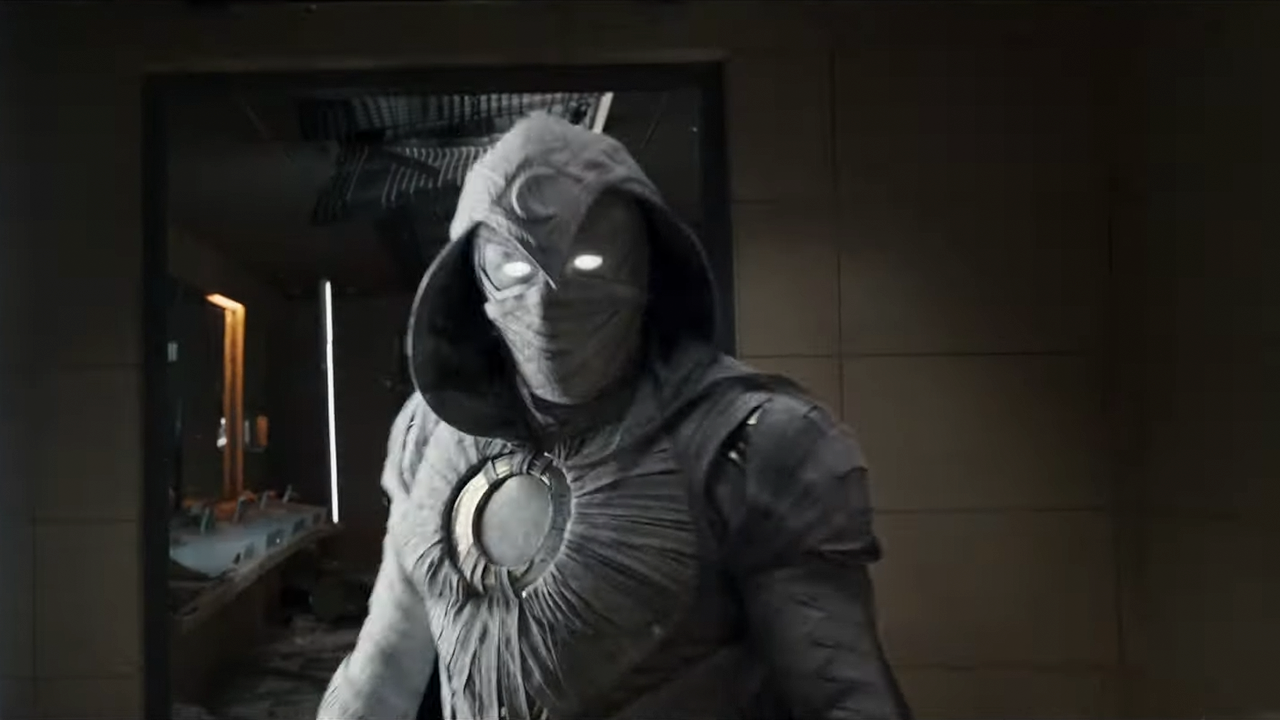
If nothing else, Moon Knight is incredibly unsettling. The series continually keeps the audience off-balance, never allowing us comfort in knowing that what we’re seeing, what’s going on, isn’t some kind of hallucination or that Marc and Steven aren’t utterly insane. It mixes in a decent emotional wallop as well, giving Oscar Isaac yet another platform to showcase his astonishing acting ability, literally transforming himself into different people inhabiting the same body to such a degree you never once find the transitions between the Marc or Steven personalities unbelievable. Together with some terrific character writing, Isaac and co-stars Ethan Hawke and May Calamawy, as well as the voice of a gravelly F Murray Abraham, deliver flawless character performances that will thrill, confound, move you to tears and incite several fist-bump moments of MCU action that are stunning in their beauty and exemplary in their execution.
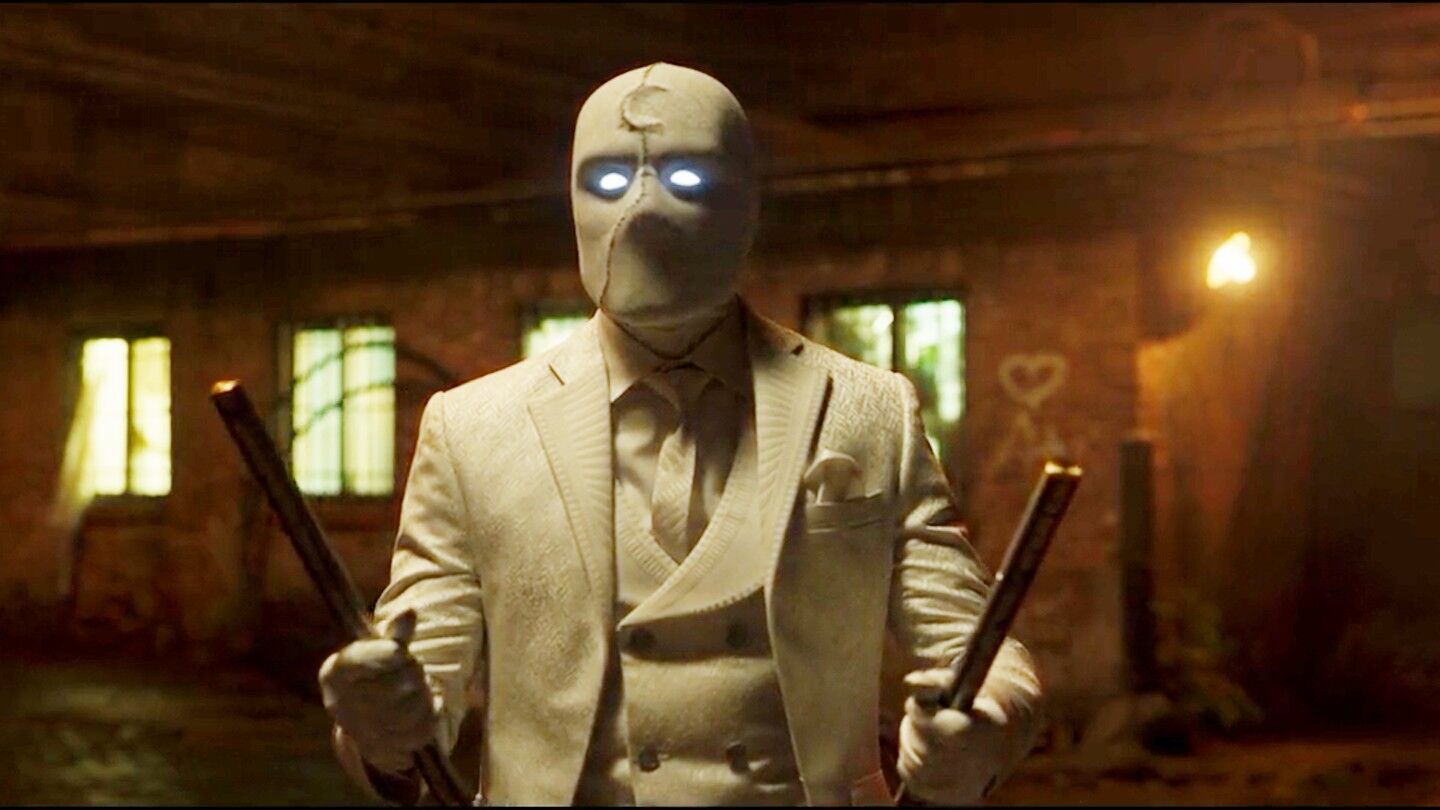
The series evolves over its relatively brief half-dozen episodes to gradually reveal the “world ending” plot imagined by villain Arthur Harrow, played with evangelical cult hero swagger by Ethan Hawke. While Harrow isn’t the most complex antagonist – he’s dedicated to a singular purpose but his backstory is never really revealed – Hawke makes the most of the role and turns what might have been a one-note character into a villain of empathetic width. May Calamawy’s Layla, whose last episode character twist had me whooping and hollering like an idiot, is a character I hope makes the transition into an Avengers film at some point. The supernatural Khonshu, manifesting as a weird skeletal bird monster, is given voice by Abraham and the verbal sparring between both he (it?) and Marc/Steven is one of the series’ highlights.
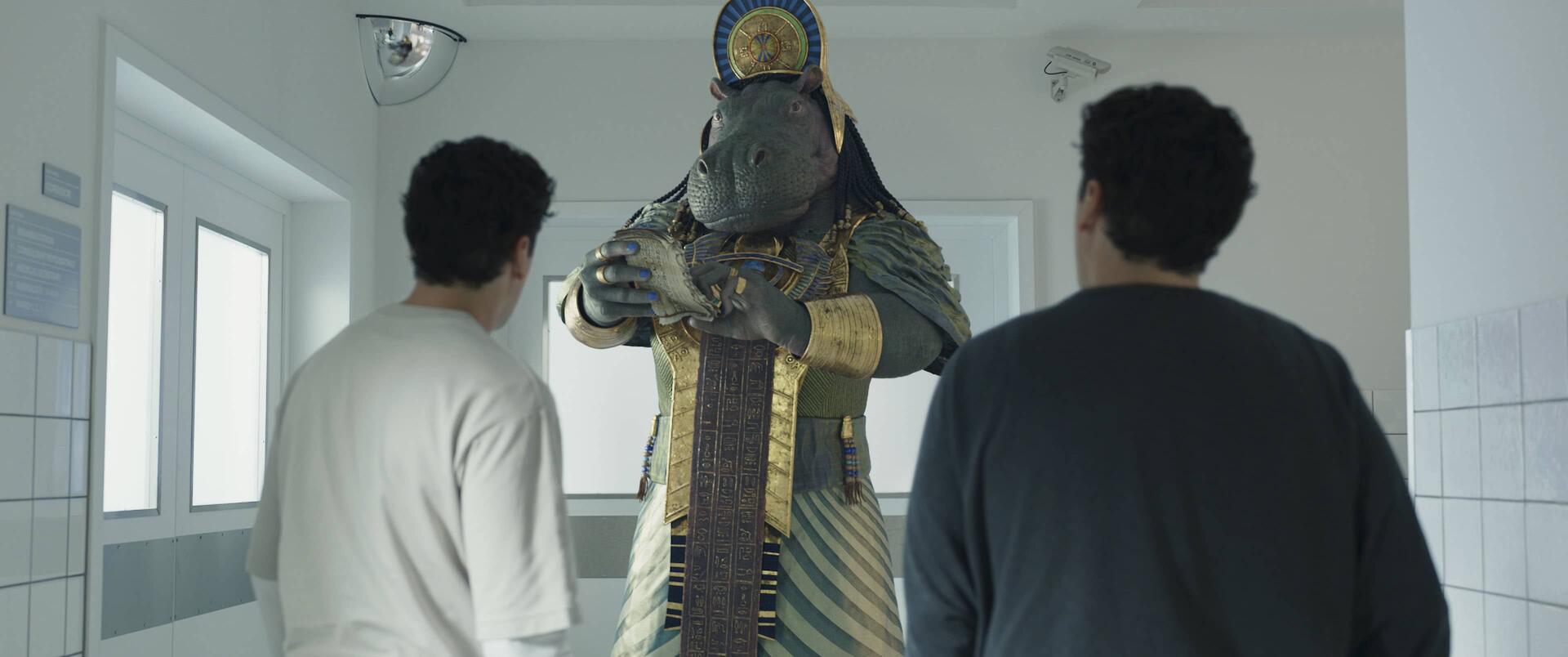
Digging into Egyptian mythology and spirituality is also among the series’ stronger aspects. Various Gods, a literal pantheon, appear at one point, to discuss the fate of the renegade Khonshu, and Ammit, who wants to judge humanity for all their sins – even ones they haven’t yet committed. Moon Knight himself is emblazoned with various crescent and moon-shaped iconographical devices, and operates largely at night under the light of the silvery moon, and when the series pushes into this supernatural aspect of the character things absolutely sing. Episode five is arguably the strongest of the six, in which the full scope of Marc and Steven’s dissociative disorder is revealed (and its catalyst), with the titular character pushed aside ever so briefly for clever, well-written exposition and revelation of the central protagonist. In the end, however, the series climaxes with the expected brawling showdown between several supernatural and super-powered characters, for the fate of the actual world, in one of the more stylish and effective sequences in the Disney+ canon thus far.
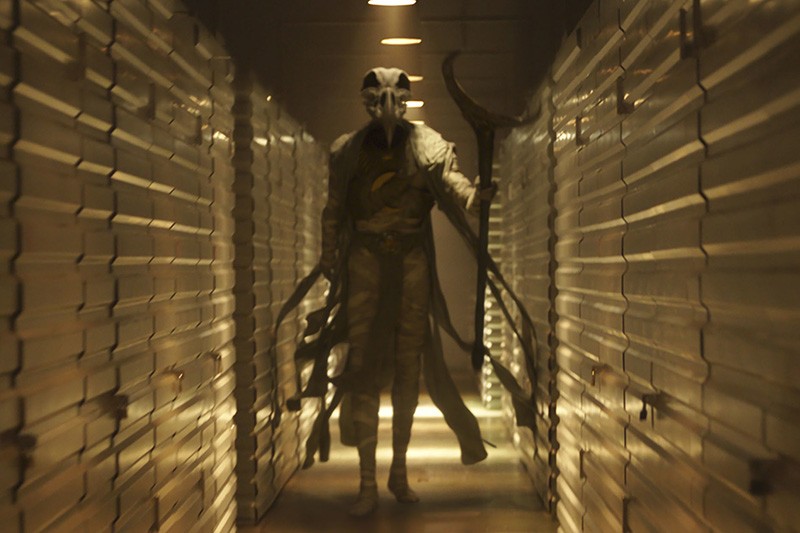
Moon Knight is a dark exploration of a specific mental illness that remains vastly misunderstood and incredibly poorly judged. It’s one-party mystery thriller, one part adventure escapism, and a whole swag of is-this-real-life crazy all wrapped up in Marvel’s patented slick production design and Mohamed Diab’s compelling and effective direction. It’s rare a mini-series goes an entire six episodes without a dull moment, Moon Knight the rarest of rare breeds with its increasingly fractured narrative and compelling lead characters making for a solid six-episode viewing experience that will enthral in its entirety. Touted as a stand-alone limited series, one hopes that Marvel bring Moon Knight back (maybe to the big screen?) again very, very soon.

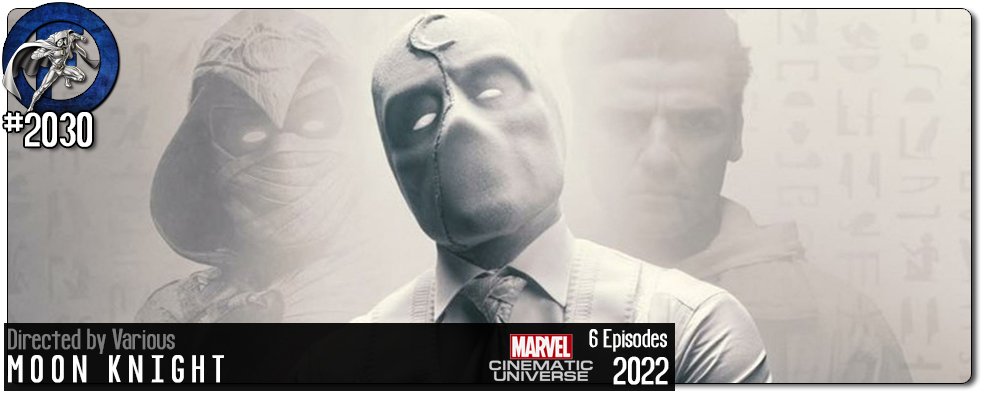
I know people are questioning about the state of the MCU given the mixed reactions towards the recent films (though I do like them) yet this show I think is incredible as I just love its exploration of mental illness, trauma, and mysticism. Oscar Isaacs I think got seriously overlooked by the Emmys for his performance as it just proves that he’s one of the best actors working today. I was happy to discover May Calamawy as she was just awesome and what she became in the end was perfect.
I do hope people see this more as I am intrigued into what Marc Spector/Steven Knight and Layla would do next while I was also glad that it chose to be something of its own without needing any kind of presence from other characters in the MCU. Now there’s 2 Muslim superheroines as the other one in Ms. Marvel. Oh… that is the show EVERYONE needs to see. I love it!